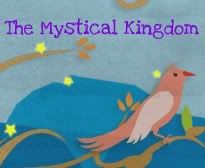| I can tell you that one of the most important contributions made by Rudolf Steiner was his description of the existence of twelve senses. Learning about the twelve senses opens up your view and level of understanding, especially when working with children... I cannot begin to go into the depth - and would highly recommend a much deeper look into the resources I have listed below. To give you a small taste, I give you Rudolf Steiner's list of the twelve senses of man.... "The I sense: Again I ask you to remember what has been said about this sense of the I . The sense of I does not refer to our capacity to be aware of our own I . This sense is not for perceiving our own I , that I which we first received on Earth; it is for perceiving the I of other men. What this sense perceives is everything that is contained in our encounters with another I in the physical world. Second, comes the sense of thought: Similarly, the sense of thought has nothing to do with the formation of our own thoughts. Something entirely different is involved when we ourselves are thinking; this thinking is not an activity of our sense of thought. That still remains to be discussed. Our sense of thought is what gives us the ability to understand and perceive the thoughts of others. Thus this sense of thought does not, primarily, have anything to do with the formation of our own thoughts. The sense of speech: Once again, this sense has nothing primarily to do with the formation of our own speech or with our ability to speak. It is the sense that enables us to understand what others say to us. The sense of hearing, or tone: This sense cannot be misunderstood. The senses of warmth, sight, taste, smell and balance: I have already characterized these senses on previous occasions, as well as in this course of lectures. |
Saturday, April 18, 2009
The Twelve senses
Subscribe to:
Post Comments (Atom)








No comments:
Post a Comment
We love hearing from you.....